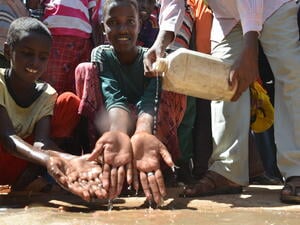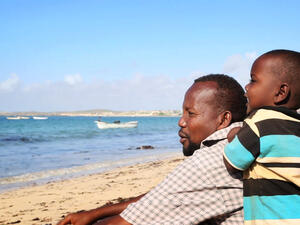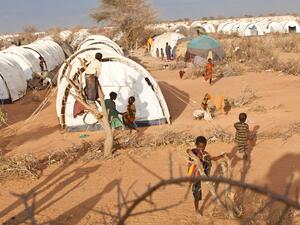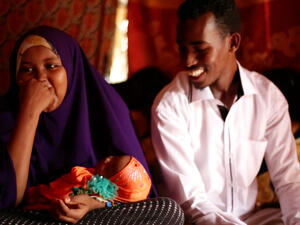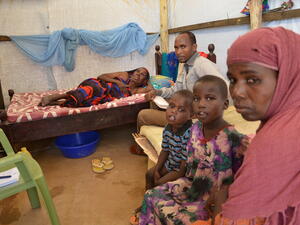UNHCR launches special appeal for refugees in Africa
UNHCR launches special appeal for refugees in Africa
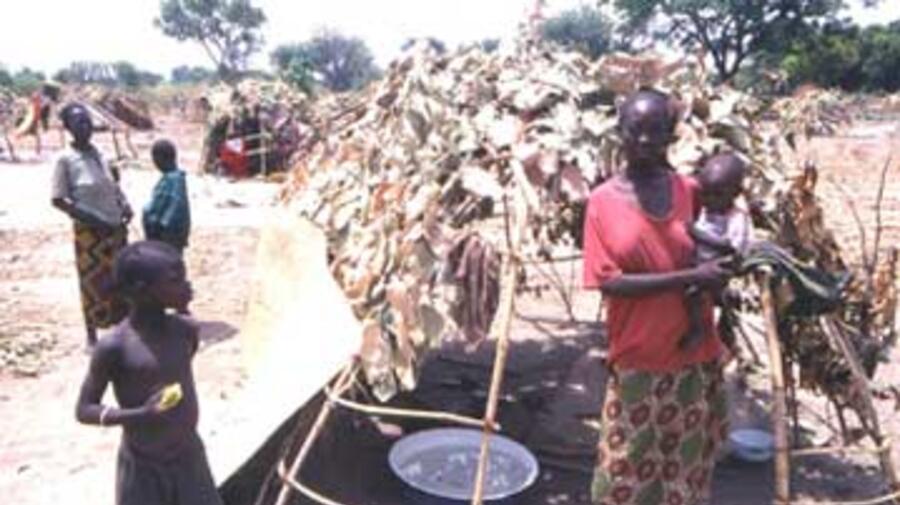
Refugees from the Central African Republic in Maro, Chad
GENEVA, July 11 (UNHCR) - The UN refugee agency said today it planned to launch a special appeal for funds to cover unforeseen needs in seven different African countries, none of which has received much international attention.
UNHCR's 'All Africa Special Appeal', totalling just over US$ 14 million, is designed to address a number of new situations involving the displacement or relocation of more than 100,000 people. All these situations have developed since the beginning of the year and are therefore not covered by the agency's current annual budget for Africa.
Almost half the required sum (US$ 6.7 million) is to provide emergency assistance to 41,000 refugees who have fled to Chad from the Central African Republic. The influx began in April, when fighting broke out between government and rebel forces in the north of the country. A recent joint assessment by UNHCR and the World Food Programme revealed that many of the refugees, who are located in extremely remote parts of southern Chad, are in dire need of aid. They need food, water and proper shelter, despite the provision of 5,000 tents by UNHCR and Médecins Sans Frontières (Belgium).
The money will be used to set up organized camp structures, including health, sanitation and educational facilities in the two main areas where the refugees have settled, taking some of the burden off the local authorities and communities.
In Kenya, an extra US$ 2.1 million is needed to pay for major repairs and reconstruction in the Dadaab and Kakuma refugee camps in the north-east of the country. Both camps were badly damaged by April's heavy rains and subsequent serious flooding, which completely destroyed around 1,000 refugee shelters and badly damaged a further 2,500 others. In addition, parts of a key access road to Dadaab were swept away, 200 latrines collapsed, some food stocks were lost and water supplies were contaminated.
In addition to repairing the damaged infrastructure and providing emergency relief supplies, UNHCR plans to relocate 16,800 refugees living in the most flood - prone area of the Kakuma camp to higher ground, before the next rains arrive in October. This will also mean setting up a new hospital and secondary school, since the existing ones were both badly damaged in the April floods and are unlikely to survive another flood, even a relatively minor one.
In neighbouring Uganda, an extra US$ 850,000 is needed to cope with 9,000 new refugees who have fled recent inter-ethnic fighting and atrocities in the Bunia region of the Democratic Republic of the Congo (DRC). The refugees have settled in the western Ugandan border areas around Lake Albert and the Semeliki River, and are currently sleeping out in the open or sheltering under local villagers' verandas. In some villages, refugees outnumber local inhabitants, placing considerable strain on existing health, sanitation and educational facilities.
UNHCR is requesting a further US$ 890,000 to relocate 15,000 Sudanese refugees who were forced to flee their camp in northern Uganda late last year by the repeated predations of the Lord's Resistance Army (LRA) rebels. Several refugees were killed and injured during the most severe attack on refugees by the LRA, in August 2002, and as a result the entire population of 24,000 refugees living in Achol - pii camp fled southwards. Since then, the refugees have been living in very overcrowded conditions in the Kiryandongo settlement. Although 8,000 have already been relocated from Kiryandongo, overcrowding remains a serious problem, contributing to two cholera and three measles outbreaks. A third cholera outbreak is now affecting the settlement.
The rest of the funds are needed for a variety of situations, including unexpected repatriations from the Central African Republic to the Democratic Republic of the Congo (DRC) and from Gabon to the Republic of the Congo (ROC). In Ethiopia, the UN refugee agency is planning to relocate around 5,300 Eritrean refugees from the disputed border between the two countries. And in Rwanda, UNHCR is trying to consolidate two existing camps into one.
UN High Commissioner for Refugees, Ruud Lubbers, has introduced the appeal at the African Union Summit currently under way in the Mozambique capital, Maputo. The appeal will be formally presented to donors next week in Geneva.
Prior to the new appeal, UNHCR's annual programme budget for Africa stood at just under US$ 330 million, with an additional US$ 65 million requested for four special programmes in Liberia, Côte D'Ivoire Angola and Zambia. The latest appeal thus takes the overall total amount required by UNHCR for its protection and assistance programmes in Africa to more than US$ 400 million.

